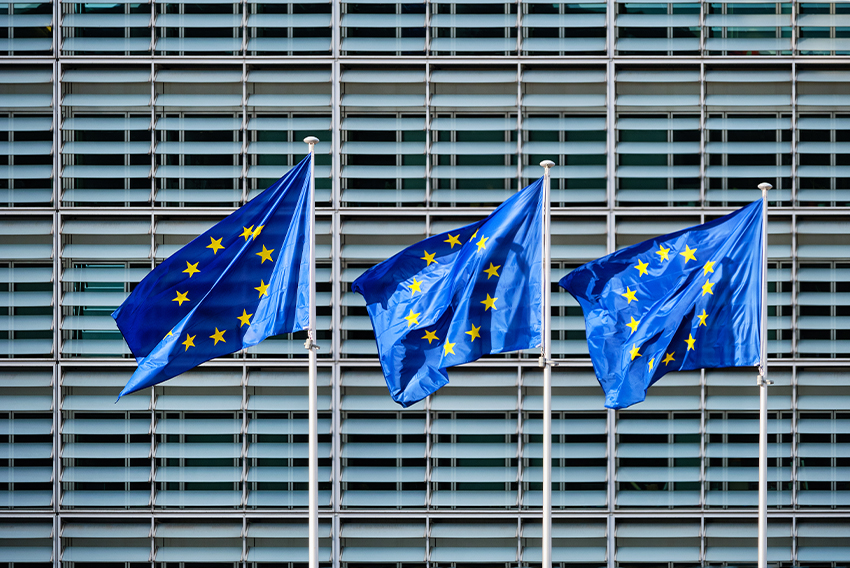Introducing the Corporate Sustainability Reporting Directive (CSRD)

A Transformative Step Towards Sustainable Business Practices
At Green Space Innovations, we stand at the forefront of the evolving landscape of sustainability reporting, where the Corporate Sustainability Reporting Directive (CSRD) emerges as a pivotal force reshaping corporate transparency and accountability.
Envisioned by the European Commission and set to take effect on January 1, 2024, the CSRD represents not merely a regulatory milestone, but a profound catalyst driving businesses across the European Union towards enhanced sustainability performance.
Decoding the CSRD: Unveiling the Directive’s Core Objectives
The CSRD, abbreviated as the Corporate Sustainability Reporting Directive, transcends its acronym to signify a sweeping initiative aimed at standardising and deepening the disclosure of non-financial performance by corporations.
Conceived in the corridors of the European Commission and enshrined in the Official Journal of the EU in December 2022, the CSRD mandates rigorous reporting on a spectrum of environmental, social, and governance (ESG) metrics. It signals a departure from perfunctory reporting practices, demanding granular insights into climate impacts, risk mitigation strategies, and sustainability initiatives.
This directive epitomises a paradigm shift in corporate reporting, underscoring the imperative for transparency and accountability in the pursuit of sustainable development goals.
“Through the CSRD, the European Commission creates a regulatory framework and a common language for all economic actors. It serves the objectives set by the EU, which encourages its members to engage in the fight against global warming.”
Fostering Sustainable Business Models: The Imperative of the CSRD
The CSRD heralds a new era of corporate stewardship, compelling businesses to integrate sustainability considerations into their strategic agendas. Positioned at the vanguard of the European Union’s sustainability agenda, this directive emboldens enterprises to embrace ESG imperatives as drivers of long-term value creation.
By elevating the discourse on sustainability reporting, the CSRD empowers organisations to cultivate resilient business models that harmonise economic prosperity with environmental and social responsibility. It encapsulates a resounding call to action, challenging stakeholders to adopt proactive measures towards achieving carbon neutrality and fostering sustainable growth.
Navigating Regulatory Compliance: Implications for Businesses
The purview of the CSRD extends beyond corporate titans, encompassing a broad spectrum of entities subject to its reporting obligations. From multinational corporations to small and medium-sized enterprises (SMEs), the directive casts a wide net, compelling entities to navigate its intricate regulatory landscape.
UK-based companies, too, are poised to reckon with the CSRD’s regulatory ambit, as its provisions extend to entities with significant operations within the European Union.
UK companies that will be required to report under the CSRD will need to commence preparatory actions for compliance, namely:
- Assessing entity eligibility within your group – Start by identifying which entities in your group are based in the EU or have significant business operations there. Evaluate if these entities meet the criteria outlined in the CSRD regulations.
- Conduct a comprehensive materiality analysis – Focus your preparations for CSRD compliance by performing a detailed materiality assessment. This step will help pinpoint specific areas where new disclosure requirements will be necessary for your initial reporting period, including policies, key performance indicators (KPIs), and objectives. This approach not only saves time by not focusing on non-material aspects as per CSRD guidelines but also offers valuable insights for your strategic planning.
- Evaluate and align disclosure standards – By comparing your current disclosure practices with the new CSRD requirements, you can identify the areas where adjustments are needed. This comparison is key to ensuring your organisation meets the new regulatory standards.
- Develop a detailed implementation plan – Once the gaps are identified, create a structured plan outlining how to address them. This includes assigning responsibility within your organisation and discussing the execution strategy with your project team.
Amidst the evolving regulatory landscape, Green Space Innovations emerges as a trusted ally, offering innovative solutions tailored to streamline sustainability reporting processes. With GreenScope as your strategic partner, compliance with the CSRD becomes not just an obligation, but an opportunity to drive meaningful change and foster sustainable business practices.
